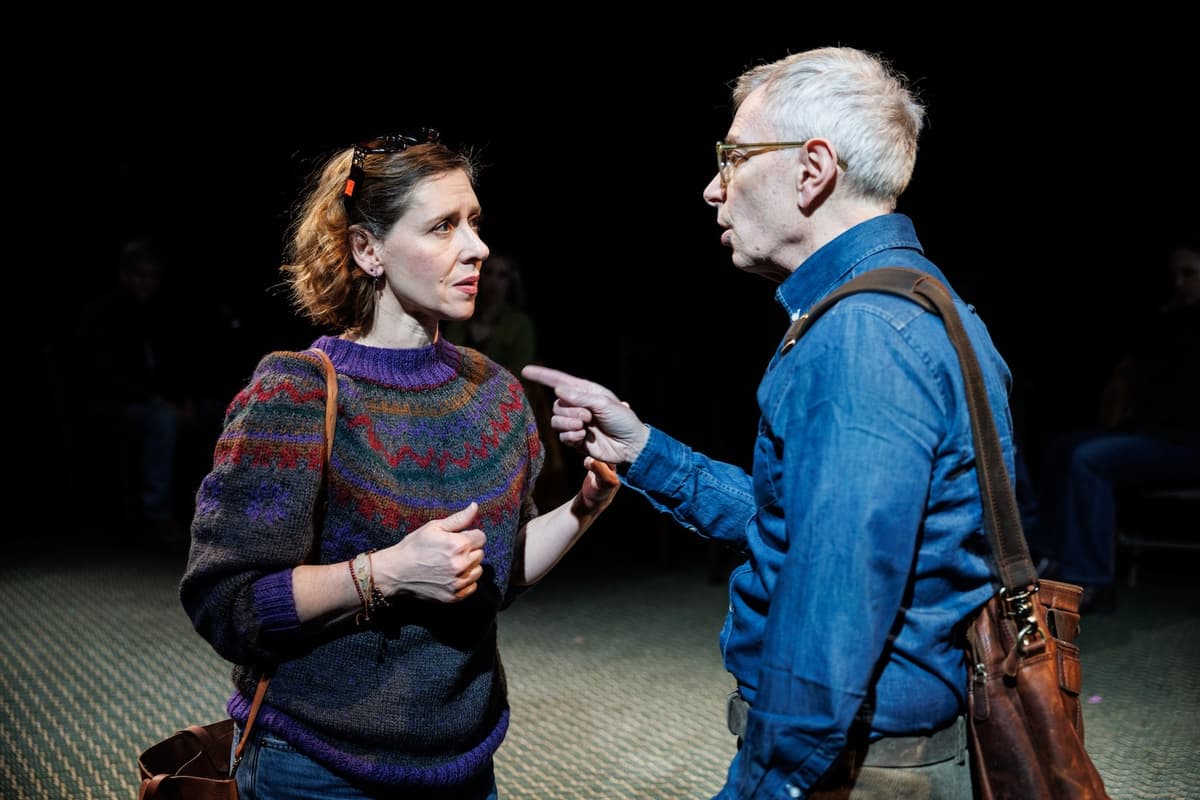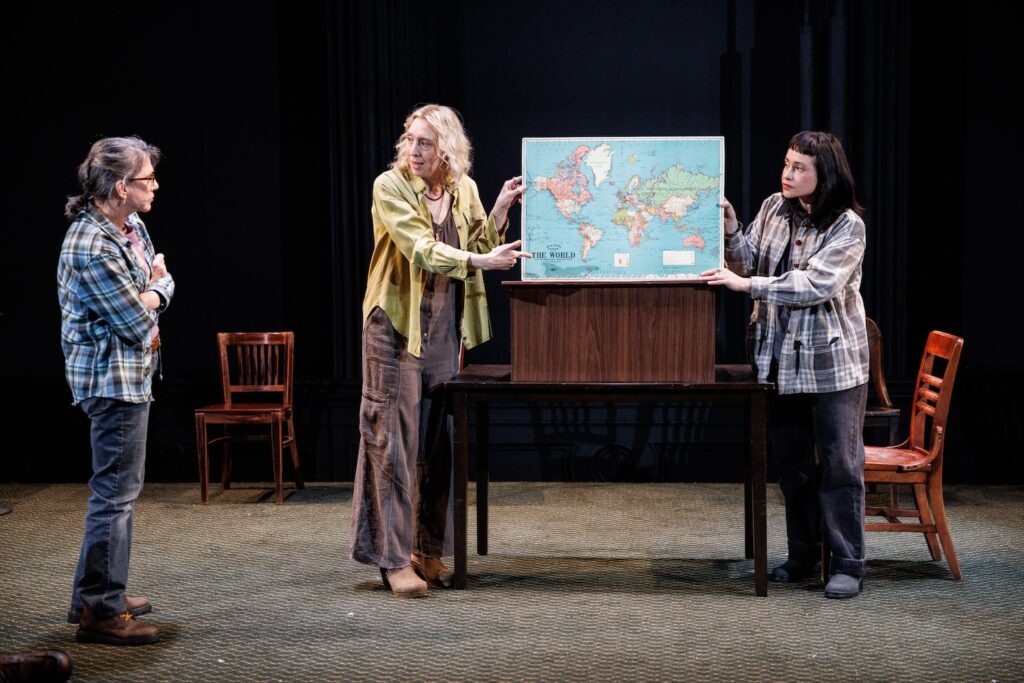Set on a Pacific Northwest Island, Abe Koogler’s ‘Deep Blue Sound’ Explores Our Links With Nature and Among Ourselves
Director Arin Arbus has brought her production, featuring a superb cast of rising and longstanding theater favorites — several new to this second staging — to the Public Theater for an extended run.

“One of the first conditions of happiness,” Leo Tolstoy once observed, “is that the link between Man and Nature shall not be broken.” Had Tolstoy lived in the digital age, he might have added the link between man and fellow man — or people, in today’s preferred parlance.
Both bonds, and their fragility, are thrown into stark relief in Abe Koogler’s “Deep Blue Sound,” a gently probing, bittersweet new play that had its premiere two years ago as part of Summerworks, a festival presented by the acclaimed theater company Clubbed Thumb. Director Arin Arbus has now brought her production, featuring a superb cast of rising and longstanding theater favorites — several new to this second staging — to the Public Theater for a more extended run.
“Sound” unfolds on a small island in the Pacific Northwest, left mostly to the imagination by the spare, intimate set provided by dots, the design collective. The performers sit on chairs and initially break the fourth wall by introducing their characters; most will juggle a few, though one is usually most prominent in the play’s interwoven stories.
“I play Ella, who’s dying of cancer,” Maryann Plunkett announces. Her grace, grit, and startling emotional transparency have made her one of the New York stage’s most enduring treasures; suffice it to say she does not disappoint in the roughly 90 minutes that follow.
Another redoubtable veteran, Arnie Burton, then tells us he’ll play John, who’s Ella’s “dear friend” yet doesn’t know the severity of her condition. One of the play’s ironies is that while the island’s community seems close-knit, its denizens often struggle to really connect with those they’re closest to; others suffer from an even more dire loneliness.

One thing uniting these men and women is the mysterious disappearance of the island’s whales, who for generations have entertained and reassured its humans with their leaping antics and the sense of environmental harmony they’ve provided. Mayor Annie, an often cranky woman whose title is largely symbolic — the local Humane Society proposed her candidacy — declares an emergency.
Notably, Annie, whose stridency and entitlement are captured with easy comic panache by Crystal Finn, has thus far devoted much of her energy to the island’s stray dogs. Another resident, Leslie, played by Jan Leslie Harding — also funny, and heartbreaking — dedicates herself to the horses she grooms, while awkwardly trying to cultivate human relationships through a pen-pal service.
But the character who seems most closely aligned with the rest of the animal world is Gary, or “Homeless Gary,” as his neighbors call him, a drifter who roams around with a chainsaw. When John, moved by empathy and his own sense of isolation that are both beautifully communicated by Mr. Burton, offers help, Gary objects.
“People don’t need houses,” Gary, played by Ryan King, projecting both stoicism and an almost childlike innocence, tells John. “There’s actually lots of ways to live. I’m not homeless.” This isn’t just Gary’s pride talking; Mr. Koogler is, it would seem, noting that we all face challenges, and this is illustrated by the other characters, all marvelously played — from Mia Katigbak’s Joy, a newspaper editor who once belonged to a cult, to Miriam Silverman’s Mary, a massage therapist trying to raise a child with a troubled ex-husband.
Ella’s path intersects meaningfully with both women; she also feels connected to the whales — she once took a class on the different sounds that constitute their language — and her illness provides a constant reminder of the mortality we all share. “I’ve wasted my [expletive] life,” she laments at her lowest point, after despair has driven her to shut out friends. Yet as “Deep Blue Sound” continually reminds us, we all do our best, and we are not alone.

